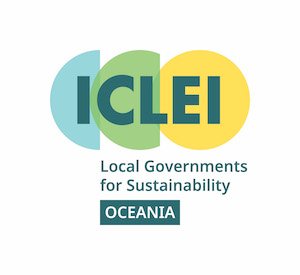Partnerships and stronger regulation will help cities embrace the circular economy challenge
An expert perspective from Luigi Zarro, Senior Professional Officer: ICLEI Oceania
At ICLEI we advocate for and deliver projects that support the transition to a circular economy. Circular economy projects promote business models and economic behaviour patterns that commit to the value and utility of products, components, materials and nutrients for as long as possible in order to close material loops, thus minimising the use of resources and the generation of waste.
Local governments across Australia, Aotearoa New Zealand and Pacific Island nations are at different levels in their transformative journeys to investment in the circular economy, but they share one trait in common: the need to promote and embrace the circular economy.
The Australian Local Government Association (ALGA), with whom ICLEI collaborates closely, highlights that 537 councils manage approximately 26 percent of Australian waste, either directly or through contractual arrangements. This waste equates to 9.7 million tonnes of waste from kerbside bin services and material recovery facilities (MRFs). Collecting, treating and disposing of Australian domestic waste, costs local governments an estimated $3.5 billion annually. Compared to other OECD countries Australia is only just above average at around 550 kilograms for all waste streams (municipal, commercial and building), however the amount recycled – 42 percent – was far below the 53 percent to 67 percent range achieved by countries such as Germany, Switzerland, Belgium, Italy and South Korea, and just below France’s 43 percent.
In Aotearoa New Zealand, municipal waste stream data is even less flattering. Government administrators have committed to improve the country’s laggard status in volumes of municipal waste per capita and have committed to a low-emissions, low-waste society, built upon a circular economy. Current estimates show that the country is one of the OECD’s worst offenders of municipal waste per capita generating approximately 700 kg per capita which is historically higher than Australian rates.
In the absence of regulation, such as those that now govern battery production and plastics in the EU, three steps that Australia and Aotearoa New Zealand can take to facilitate circularity are:
Tapping into best practices from and for other countries and cities - positive steps funded by the Australian Government’s investment in international collaboration through initiatives like the Australia-Austria Industrial Decarbonisation Grant Program are a good example of facilitating collaboration. Exploring “twinning” and sister-cities relationships with a specific focus on circular development, as well as working with networks like ICLEI, and even EU investment/export agencies from leading countries like Belgium, are immediate steps cities and regional councils can take. For Australia and Aotearoa New Zealand, there is a political, social and moral obligation, as well as an environmental responsibility, to support Pacific countries on circular economic development.
Innovative funding mechanisms - the Australian Federal Government’s establishment of the Net Zero Economy Authority backed by $189.3 million over four years from 2023-24 is a positive step for circularity, and has an objective to fund private and public partnerships (PPP). In the Pacific, the Pacific Insurance and Climate Adaptation Programme (PICAP), involving the Government of Fiji and other private and public partners that gave micro-insurance to support climate resilience, is the sort of collaboration the private sector can offer in other needed areas like circular economy development.
Clear regulation - Governments in Oceania substantially lag behind other countries on product stewardship regulation. In Aotearoa New Zealand, backing the National Plastics Action Plan with product stewardship regulation and $100 million in resource recovery infrastructure is a positive government initiative. In Australia product stewardship around televisions and computers is a positive step, but more needs to be done.
As part of more than 24 ICLEI offices across the globe, supporting a network of more than 2 500 local and regional governments, ICLEI’s experts in circular economy can support actions on the three points above related to circular development by drawing on our global expertise to:
Support your local government and partners to identify and employ the full range of levers at their disposal to promote the transition to a circular economy.
Drive your local Circular Economic Action Plans, and the implementation of Circular Systemic Solutions leveraging ICLEI’s extensive portfolio of managing circular development initiatives.
Ensure that circular transition is understood and positioned within a whole of government and community approach focussed on meaningful action.
